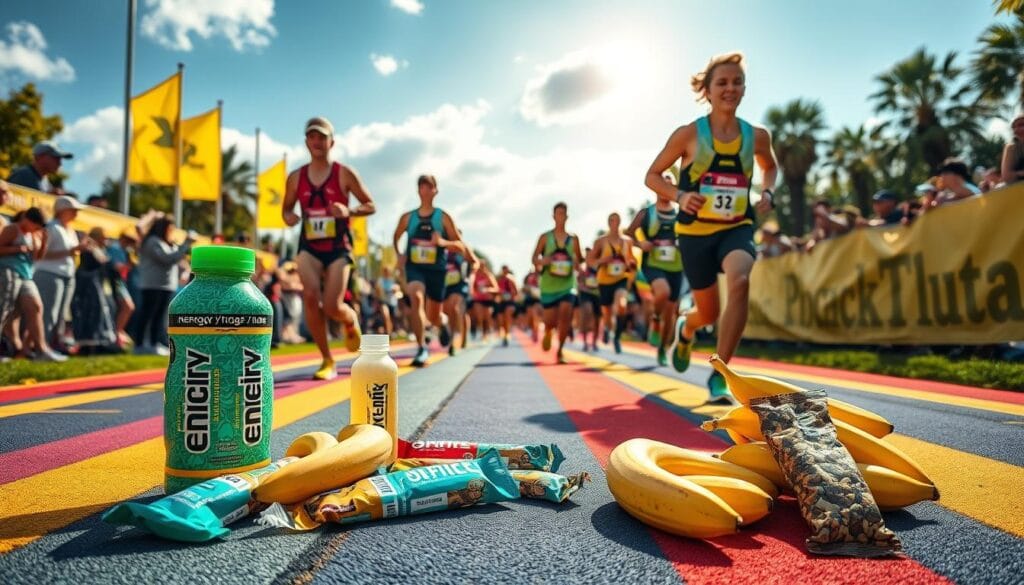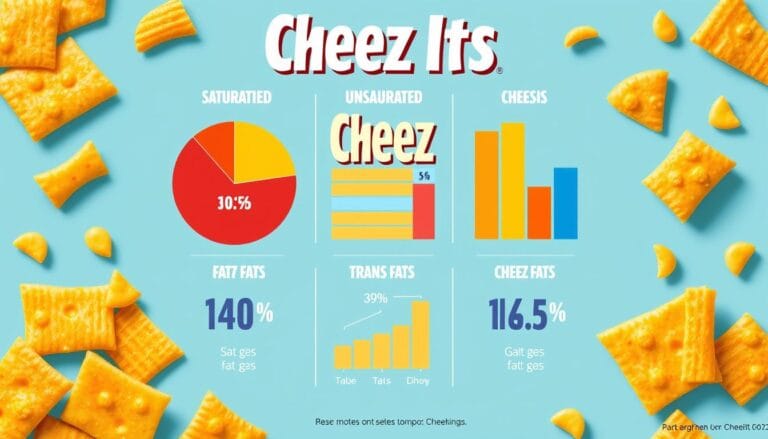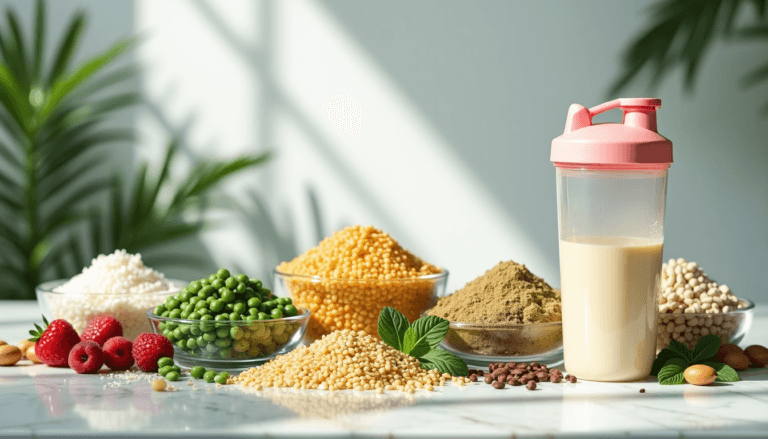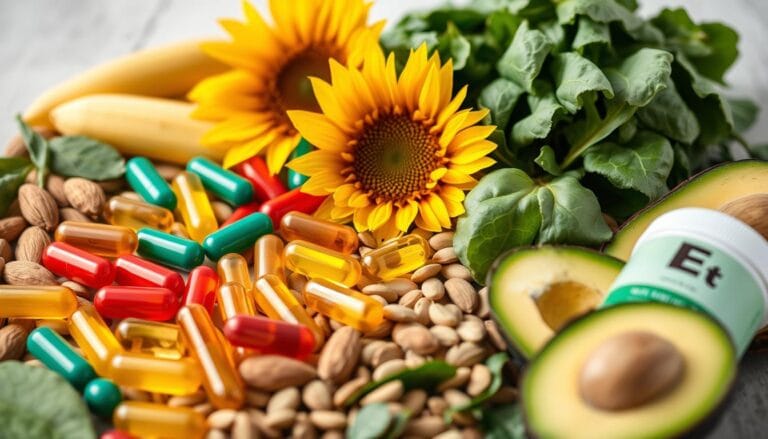How Much Nutrition During Run 1
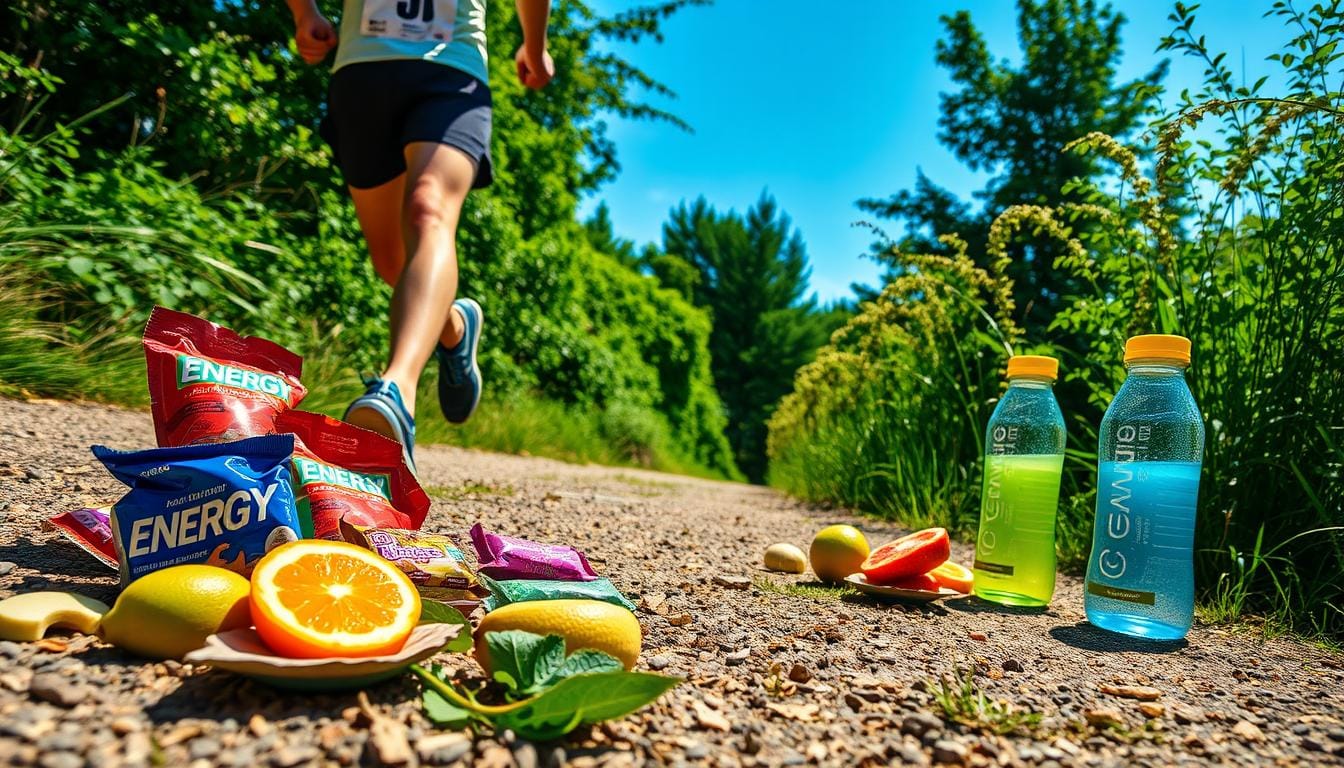
I’ve always loved running and staying fit. But, I faced a big challenge: keeping my energy up during long runs. Then, I found out how important the right food is. It changed my running game.
How Much Nutrition During Run 1 Whether you’re starting with a 5K or aiming for a marathon, knowing what to eat is key. It helps you reach your best performance.
In this guide, we’ll explore the science of running nutrition. You’ll learn how to fuel your body and keep your mind sharp. We’ll cover glycogen, timing your meals, and more. You’ll be ready for your next race or long run.
Table of Contents
Key Takeaways
- Proper fueling is crucial for running performance and endurance
- The amount of nutrition needed depends on the duration of your run
- Experimenting with different fuel sources and timing is key to finding your optimal strategy
- Staying hydrated and maintaining electrolyte balance are essential for optimal performance
- Managing digestive issues while running requires a careful approach to nutrition
Let’s explore the secrets of running nutrition. It will change how you train and help you reach your fitness goals. Get ready to fuel your endurance like never before.
READ MORE : How Many Vitamin E Cases Are There 01
Understanding Running Nutrition Fundamentals
As a runner, knowing about glycogen stores, carbohydrate intake, and energy systems is key. Carbohydrates are the body’s top choice for fuel during exercise. Proper fueling can greatly improve your performance and prevent feeling exhausted too soon.
The Role of Glycogen in Running Performance
The body can store up to 500g of carbohydrates as glycogen. This energy can last for 60-90 minutes of exercise at a moderate intensity. Keeping glycogen levels up is vital for long-lasting endurance.
Why Proper Fueling Matters for Runners
Fueling correctly before, during, and after runs is crucial. It helps refill glycogen stores, reduces fatigue, and aids in recovery. The right amount of carbs supports your body’s energy systems and helps you perform at your peak.
Energy Systems During Exercise
The body uses two main energy systems during exercise: aerobic and anaerobic. Carbohydrates are essential for both, providing fuel for muscles and ensuring efficient energy use. This is true for both long-distance runs and intense intervals.
By grasping the basics of running nutrition, you can craft a smart eating habits and exercise routine. This will help you reach your performance goals and boost your running abilities.
How Much Nutrition During Run: Essential Guidelines
Eating the right foods during your run is key for energy and performance. Experts at Qua Nutrition say runners should eat 30-60 grams of carbohydrates per hour for long runs. For shorter runs, a small snack with carbs about 60 minutes before helps.
Carb loading is good for runs over 90 minutes to fill glycogen stores. Use energy gels and gummies during runs, trying different brands and flavors in training.
- Eat about 3 hours before a long run for enough protein and carbs.
- Qua Nutrition says 45 to 65% of daily calories should be carbs.
- Endurance runners need 1.2 to 1.4 grams of protein per kilogram of body weight daily.
- Fats should not make up more than 20 to 30% of your diet as they’re not a main energy source.
Recovering well after a run is also important. Qua Nutrition suggests eating 20 to 30 grams of protein within two hours post-run to help muscles.
Staying hydrated is vital during your run. Qua Nutrition advises drinking 10 to 24 oz of fluid every hour with enough electrolytes. Before an event, drink 5 to 10 ml of fluid per kg of body weight gradually. If you’re dehydrated after running, Qua Nutrition suggests drinking about 1.5 liters of fluid for every kilogram of body weight.
If you’re trying to lose weight while running, focus on staying hydrated and controlling portions. This helps with weight management.
Timing Your Nutrition for Optimal Performance
Getting your nutrition right before, during, and after your run is key. It keeps your energy up, stops you from getting tired, and helps you recover. Knowing when to eat the right foods can boost your running skills.
Pre-Run Fueling Windows
Drink about 530ml of water with electrolytes 3 hours before running. This keeps you hydrated and gives your body the fuel it needs. Stay away from big, greasy, or heavy meals before running to avoid stomach issues.
Mid-Run Nutrition Intervals
Start eating within the first 30 minutes of running. Then, eat 30-60 grams of carbs every 30-40 minutes. This keeps your energy up and stops you from getting tired. Choose quick-digesting carbs like sports gels or chews for best results.
Post-Run Recovery Timeline
Start recovering within 30 minutes of finishing your run. Eat a mix of carbs and protein to refill your energy stores and fix muscles. Try a protein shake, chocolate milk, or a meal with protein, carbs, and healthy fats.
Timing your nutrition right can help you reach your running goals. Remember, being consistent and finding what works for you is important.
Carbohydrate Requirements Based on Running Duration
As a runner, your body needs the right amount of carbs to keep going during long runs. It’s key to fuel up right to avoid running out of energy and stay at your best.
For runs over 60 minutes, aim for 30-60 grams of carbs every hour for the first three hours. Then, up your carb intake to 60-90 grams per hour. You can get these carbs from sports drinks, gels, bars, or even bananas or Jelly Babies.
Your carb needs can change based on your size, how hard you run, and how long you’re out there. Getting help from a sports nutritionist or using a nutrition app can tailor your fueling plan for better performance.
Endurance athletes, like long-distance runners, need 2.7 to 4.5 grams of carbs per pound of body weight each day. For instance, a 150-pound runner should eat 405 to 675 grams of carbs daily. They also need 1.2-1.7 grams of protein per kilogram of body weight daily to help muscles recover and repair.
By eating the right carbs and protein, you fuel your body for top performance. This supports your healthy lifestyle and mental well-being as a runner.
“Proper fueling is essential to avoid glycogen depletion and maintain optimal performance.”
Hydration Strategies for Runners
For runners, staying hydrated is key for good performance and health. You can lose 400 to 2,400 milliliters of fluid per hour. This depends on the weather, humidity, and how hard you’re working out.
Water Intake Guidelines
Drink 300 to 800 milliliters of water each hour while running. Adjust this based on the weather and your body’s needs. Check your urine color to see if you’re drinking enough. It should be pale yellow.
Electrolyte Balance During Running
It’s also important to replace lost electrolytes. Long runs can cause you to lose a lot of sodium. This can lead to muscle cramps. Aim to take in 700 to 900 milligrams of sodium per hour.
Signs of Dehydration to Watch For
Watch for signs of dehydration like feeling tired, dry mouth, dark urine, muscle cramps, and headaches. Dealing with dehydration fast is crucial. It helps avoid health problems and keeps you running well.
By following these tips, you can keep your body fueled and ready to run. Staying hydrated and balancing electrolytes is vital for your training and race success.
Best Fuel Sources During Long Runs
When you’re on a long run, you have many fuel options. You can choose from energy gels, sports drinks, or real food. The most important thing is to find what works best for you.
Energy gels are a favorite among runners. They give a quick energy boost. But, you need to drink water to digest them well. Sports drinks, on the other hand, have carbs and electrolytes. They help with hydration and replace lost salts.
Real foods like bananas, pretzels, and dried fruit are also good. They give energy that lasts longer and are a natural source of carbs. Try different foods during your runs to see what works best for you.
It’s key to avoid foods high in fiber and spices during runs. They can upset your stomach. Eating well and fueling right can greatly improve your running, just like Kelly Clarkson’s weight loss journey shows.
| Fuel Source | Carbohydrates per Serving | Pros | Cons |
|---|---|---|---|
| Energy Gels | 20-30 grams | Quick energy, easy to consume | Requires water, can cause GI distress |
| Sports Drinks | 15-30 grams | Provides carbs and electrolytes, helps with hydration | Can be high in sugar, may cause GI issues for some |
| Bananas | 23 grams | Natural, longer-lasting energy, easy to digest | Requires carrying/storing, may cause GI issues for some |
| Pretzels | 30 grams | Easily portable, provides quick carbs | May cause dry mouth, less nutrient-dense |
| Dried Fruit | 29-35 grams | Natural, nutrient-dense, easy to digest | Can be high in sugar, may cause GI issues for some |
Remember, the best fuel for long runs is what works for you. Try different options to find the right mix of energy, fuel, and comfort.
Managing Stomach Issues While Running
As a runner, you might have faced the dreaded “runner’s trots.” This common problem can really upset your training or races. Knowing why it happens and how to stop it can help you feel better.
Common Digestive Problems
Runner’s trots, or GI distress, is a big worry for many athletes. Studies say 30–50 percent of runners get GI symptoms during hard exercise. Running, less blood to the stomach, and stress can all play a part.
Symptoms of runner’s stomach can last up to 24 hours, especially after a long run. Some people might not feel it until after they finish running or during recovery.
Prevention Strategies
To avoid GI issues while running, stay hydrated and manage your food well. Drink about 3 ounces of fluid every 15 minutes of running. Also, eat foods that are low in fat, fiber, and FODMAPs before and after running to avoid stomach upset.
Start using sports drinks and gels slowly during long runs. This helps your stomach get used to them. Be careful with caffeine and sugar alcohols as they can upset your stomach.
Timing Your Intake
When you eat is just as important as what you eat. Stick to easy-to-digest foods before running and avoid heavy or fatty meals. During runs, find water sources carefully and don’t chew while running to avoid choking.
By understanding why stomach problems happen and using the right prevention strategies, you can manage your stomach issues. This way, you can enjoy running more and do better in your training and races.
Sports Nutrition Products vs. Natural Foods
As a runner, you might wonder if to use energy gels, sports drinks, or natural whole foods for fuel. Both have their good points and bad, depending on what you need and like.
Energy gels and sports drinks are made for quick energy. They give a fast boost of carbs, great for long runs or hard workouts. They’re easy to carry and quick to digest, making them a hit with athletes and runners.
Natural foods like bananas, pretzels, or trail mix are also good and cheaper. They give energy that lasts longer. But, they’re harder to eat while running and take longer to digest.
| Sports Nutrition Products | Natural Foods |
|---|---|
| Designed for quick energy | Provide sustained energy |
| Easy to consume on the go | May require more chewing and digestion |
| Often contain added sugars and artificial ingredients | Generally more natural and less processed |
| Can be expensive | Usually more cost-effective |
Choosing between sports nutrition products and natural foods depends on your needs and running style. Try different things to see what works best for you.
“Proper nutrition is essential for athletes to perform at their best. It’s not just about calories, but the right balance of macronutrients and micronutrients.”
Remember, motivation and consistency are key in fueling your runs. Try out different sports nutrition products and whole foods to find what’s best for you.
Safety Tips for Eating While Running
As a runner, it’s key to fuel your body right to perform well and avoid injuries. But eating and drinking while moving can be tricky. Here are some tips to keep you safe and running smoothly:
- Avoid dry or crunchy foods that could cause choking. Choose gels, chews, and liquids that are easy to swallow while moving.
- Try to eat near water sources, like aid stations, to help with digestion and prevent discomfort.
- Don’t try to eat and swallow while running. Stop for a bit, then start again.
- Test your fueling plan during training runs to find any problems and fix them before the big race.
By sticking to these choking prevention and hydration tips, you can safely fuel your body. This way, you can reach your running goals without hurting your mental health awareness.
| Recommendation | Rationale |
|---|---|
| Consume 30-60 grams of carbohydrates per hour during longer runs | To maintain energy levels and prevent glycogen depletion |
| Drink 0.5-1 liter of fluid per hour, depending on conditions | To stay adequately hydrated and replace electrolytes lost through sweat |
| Practice your nutrition and hydration plan during training | To identify any issues and make adjustments before race day |
By following these safety tips, you can make your runs more enjoyable and successful. You’ll fuel your body well while keeping your overall health in check.
Conclusion
Proper nutrition is key for your running performance and health. Tailor your nutrition to your run’s length, intensity, and your taste. Practice your fueling plan during training to find the right mix of carbs, water, and salts.
Nutrition does more than fuel your runs. It also boosts your health and helps with recovery. Eating a variety of whole foods like carbs, proteins, fats, and vitamins is essential. It helps you run better and can lead to weight loss.
Getting advice from a nutritionist can really help. They can create a plan that fits your training and goals. By focusing on your nutrition, you can reach your fitness dreams.


